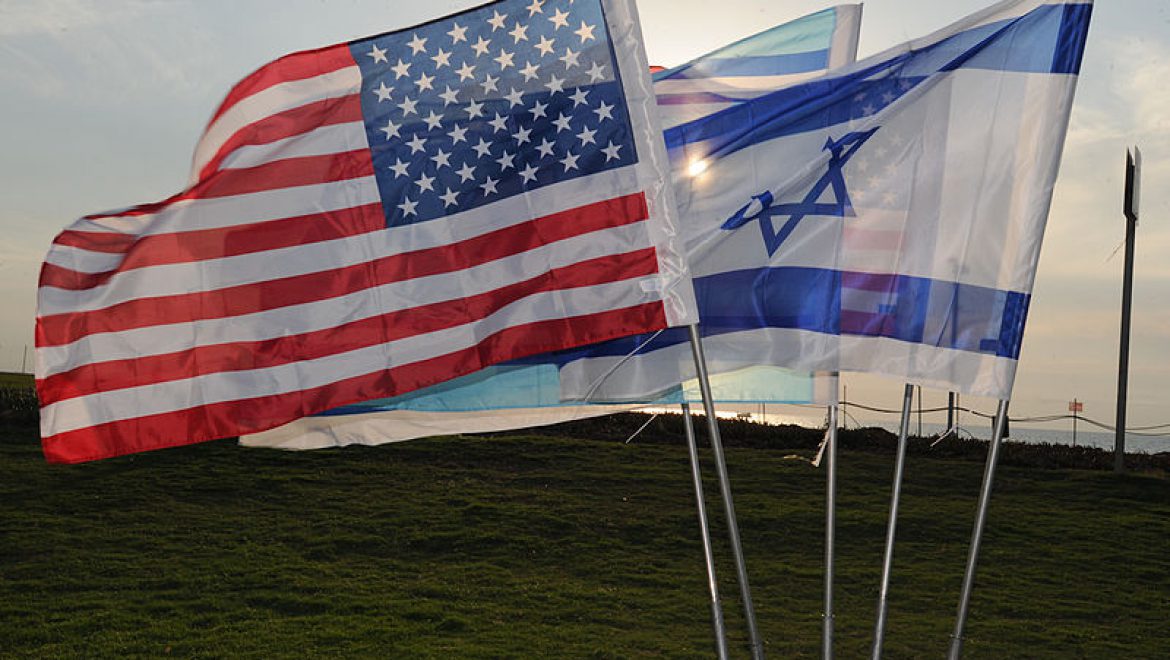
This post presents the text of Louis D. Brandeis‘ address at the Conference of the Eastern Council of Reform Rabbis in June, 1915, entitled “Zionism is Consistent with American Patriotism.” In this speech, Brandeis rejects the idea that there would be a conflict of interests for a Jewish American to be both a Zionist and a loyal American. In fact, he argues that the values of Zionism would make one a “better” American, and vice versa. Brandeis was an an American lawyer and associate justice on the Supreme Court of the United States from 1916 to 1939. This resource was shared by the World Union of Jewish Students together with other resources for Yom Ha’atzmaut.
Zionism is Consistent with American Patriotism
Let no American imagine that Zionism is inconsistent with Patriotism. Multiple loyalties are objectionable only if they are inconsistent. A man is a better citizen of the United States for being also a loyal citizen of his state, and of his city; for being loyal to his family, and to his profession or trade; for being loyal to his college or his lodge. Every Irish American who contributed towards advancing home rule was a better man and a better American for the sacrifice he made. Every American Jew who aids in advancing the Jewish settlement in Palestine, though he feels that neither he nor his descendants will ever live there, will likewise be a better man and a better American for doing so.
Note what Seton-Watson says: America is full of nationalities which, while accepting with enthusiasm their new American citizenship, nevertheless look to some centre in the old world as the source and inspiration of their national culture and traditions. The most typical instance is the feeling of the American Jew for Palestine which may well become a focus for his declasse kinsmen in other parts of the world. There is no inconsistency between loyalty to America and loyalty to Jewry. The Jewish spirit, the product of our religion and experiences, is essentially modern and essentially American. Not since the destruction of the Temple have the Jews in spirit and in ideals been so fully in harmony with the noblest aspirations of the country in which they lived. America’s fundamental law seeks to make real the brotherhood of man. That brotherhood became the Jewish fundamental law more than twenty-five hundred years ago.
America’s insistent demand in the twentieth century is for social justice. That has also been the Jews’ striving for ages. Their affliction as well as their religion has prepared the Jews for effective democracy. Persecution broadened their sympathies. It trained them in patient endurance, in self-control, and in sacrifice. It made them think as well as suffer. It deepened the passion for righteousness. Indeed, loyalty to America demands rather that each American Jew become a Zionist. For only through the ennobling effect of its strivings can we develop the best that is in us and give to this country the full benefit of our great inheritance. The Jewish spirit, so long preserved, the character developed by so many centuries of sacrifice, should be preserved and developed further, so that in America as elsewhere the sons of the race may, in the future, live lives and do deeds worthy of their ancestors.
But we have also an immediate and more pressing duty in the performance of which Zionism alone seems capable of affording effective aid. We must protect America and ourselves from demoralization which has to some extent already set in among American Jews. The cause of this demoralization is clear. It results in large part from the fact that in our land of liberty all the restraints by which the Jews were protected in their Ghettos were removed and [the] new generation [is] left without [the] necessary moral and spiritual support. And is it not equally clear what the only possible remedy is?
It is the laborious task of inculcating self-respect, a task which can be accomplished only by restoring the ties of the Jew to the noble past of his race, and by making him realize the possibilities of a no less glorious future. The sole bulwark against demoralization is to develop in each new generation of Jews in America the sense of noblesse oblige. That spirit can best be developed by actively participating in some way in furthering the ideals of the Jewish renaissance; and this can be done effectively only through furthering the Zionist movement. In the Jewish colonies of Palestine there are no Jewish criminals; because everyone, old and young alike, is led to feel the glory of his people and his obligation to carry forward its ideals. The new Palestinian Jewry produces instead of criminals, scientists like Aaron Aaronsohn, the discoverer of wild wheat; pedagogues like David Yellin; craftsmen like Boris Schatz, the founder of Bezalel; intrepid Shomrin, the guards of peace, who watch in the night against marauders and doers of violent deeds.

